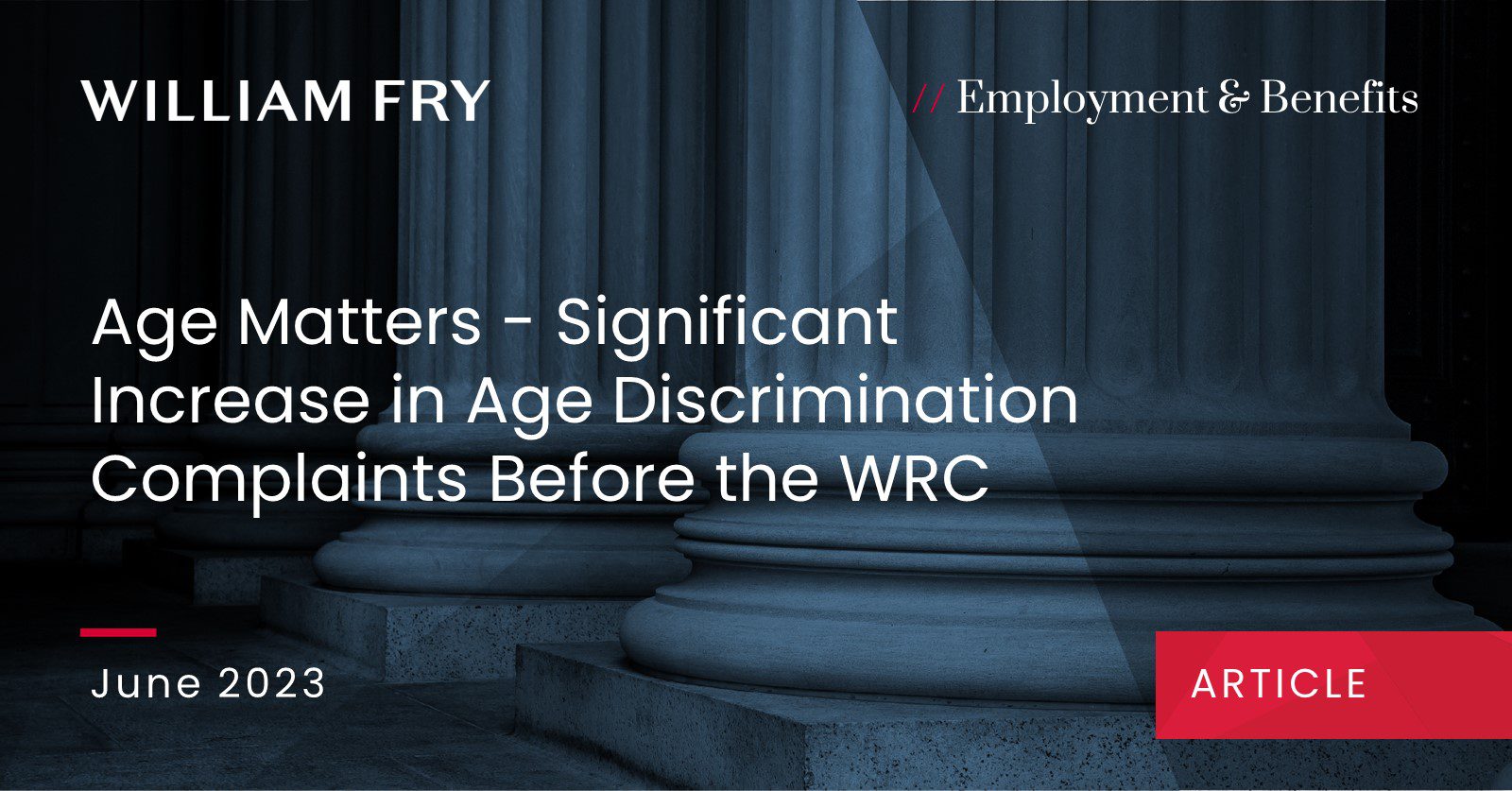The Workplace Relations Commission (WRC) published its Annual Report (Annual Report) for 2022 on 9 May 2022.
The Annual Report indicates a significant increase in the number of age discrimination complaints received by the WRC in 2022 compared to 2021. The WRC received 514 complaints citing age as a ground for discrimination compared to 186 complaints received in 2021. This reflects a 176% increase in complaints citing age as a ground for discrimination last year.
The Employment Equality Acts 1998 – 2015 (EEA) prohibits discrimination towards current or prospective employees on the grounds of age in relation to access to employment, conditions of employment, training, promotion and the re-grading or classification of posts. Discrimination can be direct (for example, a job description requiring a certain number of years of industry experience may discriminate against younger prospective employees) or indirect (for example, requiring a certain level of seniority to be eligible for promotion). The employer’s intent is largely irrelevant. Instead, the effect of the discrimination on the current or prospective employee is critical. Indirect discrimination may be permitted if it can be objectively justified and is proportionate to achieving a legitimate business aim.
William Fry’s Report on Age in the Workplace (available here) highlighted that age-related issues pose difficulties for employers and employees at all stages of employment. It is important that employers understand their statutory obligations and take steps to prevent/deal with age discrimination.
Key Takeaway for Employers
- Educate employees on what constitutes discrimination under Irish equality legislation.
- Ensure that employee policies make clear that discrimination on any grounds, including age, is prohibited.
- Identify whether the organisation has prescribed a retirement age. If so, consider the reason for having a mandatory retirement age. Is it applied consistently?
- Avoid using age as a determinative factor in any decisions on job candidates, internal promotions or training and development opportunities. Ensure that decision-makers are appropriately trained, and that training is updated and repeated as necessary.
How Can We Help You?
Our Employment and Benefits team is here to help your organisation comply with its obligations under the EEA and to foster a workplace free from discrimination. For further information, please contact Alicia Compton, Catherine O’Flynn or your usual William Fry contact.
Contributed by Ellen O’Duffy
Recommended Insights









